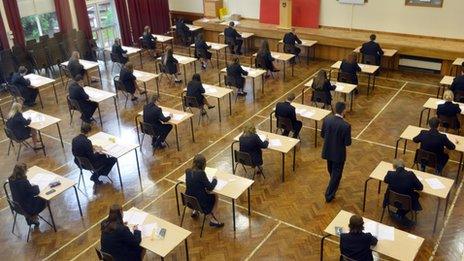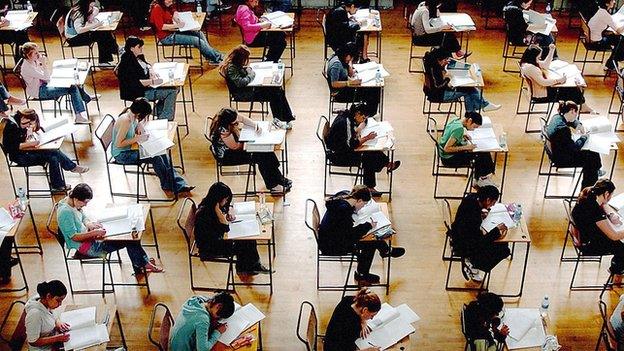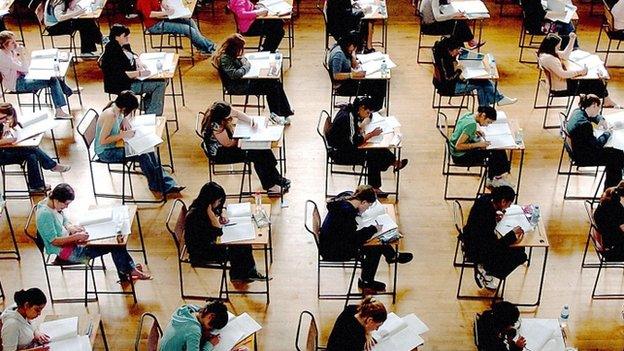Big variations predicted in GCSE results
- Published

All GCSEs are being assessed by end-of-year exams
Schools in England have been told to expect big variations in their GCSE results because of the largest set of changes to exams for several years.
Exams regulator Ofqual said a return to end-of-course exams and alterations to key exams signal "more variability" than usual at school level.
A dramatic fall in the number of pupils sitting GCSE maths and English early was also likely to have an impact.
Chief regulator Glenys Stacey said standards would be "held steady".
'Early entries down'
This year's changes include all pupils being tested on their course knowledge at the end of their two-year GCSE courses, and significant changes to compulsory English GCSEs.
Approximately 300,000 fewer students than last year have been entered for GCSEs a year early (in Year 10). It follows changes to the way league table measures count these results.
The government decreed that only a student's first attempt at any given subject was to count at GCSE.
Overall, early entries, which had become routine in many schools, are now down 40% on last year.
Exam boards and ministers said borderline candidates had been sitting key exams early and often until they achieved a C-grade - regarded as a gateway to post-16 education and training.
There was also evidence that those who sat such exams early did less well, the government had claimed.
Ms Stacey said: "Overall, results are likely to look different because of the difference in entry patterns. Direct comparisons cannot be made because you wouldn't be comparing like for like.
"The one thing that we can all be sure of is that standards will be held steady.
"We expect that schools will see some variability in their results compared to last year. Different schools will have been affected in different ways.
"We can expect that we will see different effects school by school, and students will respond differently to different qualifications."
But Ms Stacey was not able to say how results would be affected nationally.
'No disadvantage'
She stressed that the regulator had an "ethical imperative" to "make sure that as qualifications change, students are not advantaged or disadvantaged as much as possible".
Her comments were echoed by Michael Turner, director general of the Joint Council for Qualifications, which represents the exam boards.
He said: "Standards will be maintained but the changes have meant we have seen a dramatic reduction in early and multiple entries for GCSEs.
"The changes will impact schools' results to varying degrees. For example, if a school usually enters its 15-year-olds for GCSEs but doesn't this year, due to the changes, their overall results might look very different.
"We feel it is important to ensure teachers, governors and parents understand why individual school results may look different this year.
"That is why we will be providing a comprehensive overview of the changes and how they impact on the results."
- Published1 August 2014

- Published4 July 2014
